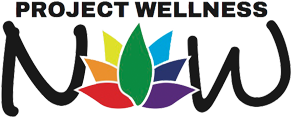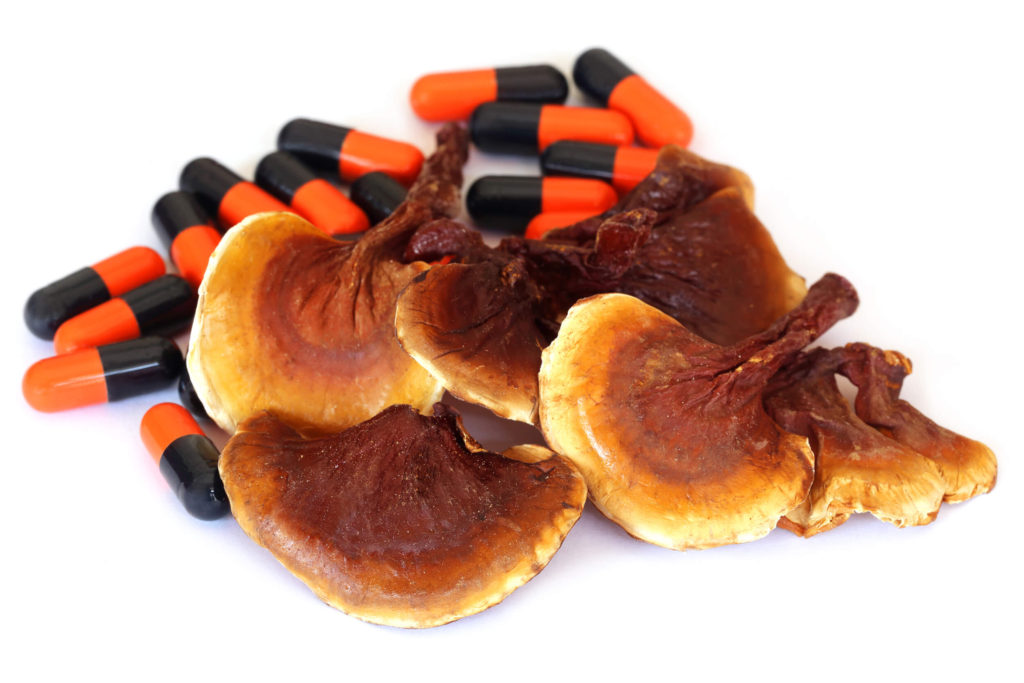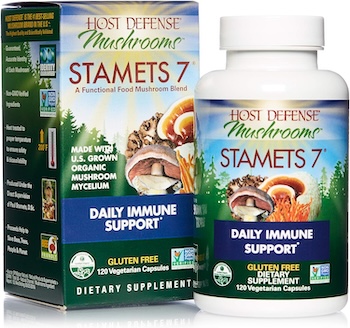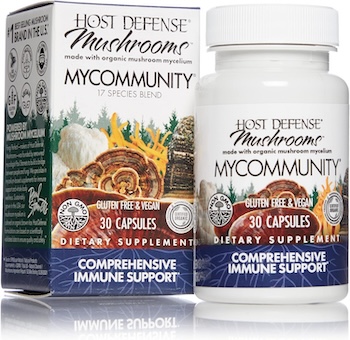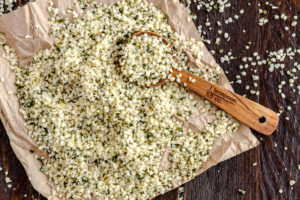“Traditionally valued for their health benefits as well as their nutritional value, modern research is now confirming the therapeutic properties of many mushroom species.”
~ Martin Powell, Medicinal Mushrooms: The Essential Guide
Mushrooms have been used for millennia as food as well as medicine. But which are the best varieties for specific conditions, and how should they be prepared?
Read on for an introduction to some of the most potent medicinal and performance-boosting mushrooms, along with instructions on how best to take them to enhance your health and well-being.
MEDICINAL MUSHROOMS: OUR FRIENDS FROM THE FUNGAL KINGDOM
Let’s start with some biological basics. Mushrooms are part of the fungal kingdom. What this means, interestingly, is that they’re more closely related (in evolutionary terms) to humans and other members of the animal kingdom–than they are to plants. And it’s this closeness to the animal kingdom that accounts for their powerful effects on human physiology.
This power isn’t always benign: certain mushrooms can have damaging or even deadly effects on a human body—which is why it’s best not to wildcraft mushrooms unless you really know what you’re doing (or are being closely guided by someone who does).
The good news is that among the 14,000 or so identified species of mushrooms, a number of them offer significant benefits to humans, and those are the ones we’ll be focusing on here.
THE BENEFITS OF MEDICINAL MUSHROOMS
Though mushrooms have been used medicinally for thousands of years in Asian countries, it’s only in recent decades that Western cultures—along with Western science—have begun to acknowledge their therapeutic benefits.
Certain mushrooms’ vitamins, minerals, enzymes, and other bioactive constituents have been shown to boost the human immune system and combat a variety of diseases. Some mushroom species have antiviral, anti-inflammatory, and antioxidant qualities. Others boost energy levels and supplement important vitamins.
Some of the proven health benefits of medicinal mushrooms include:
• Fighting cancer
• Improving immunity
• Resolving inflammation
• Inhibiting viruses and decreasing the severity of illness
• Protecting heart health
• Supporting energy levels
• Improving brain function
• Providing the body with vitamin D
This is quite an impressive résumé! So which mushrooms, in particular, can offer such profound benefits?

Common Medicinal Mushrooms
Among medicinal mushrooms, some of the most commonly used are:
• Chaga (Inonotus obliquus)
• Reishi (Ganoderma lucidum)
• Turkey Tail (Trametes versicolor, Coriolus versicolor)
• Shiitake (Lentinula edodes)
• Lion’s Mane (Hericium erinaceus)
• Cordyceps (Cordyceps sinensis)
• Maitake (Grifola frondosa)
• Blazei (Agaricus brasiliensis)
Each of these is wonderful in countless ways! But for now let’s look more closely at just four of these health-enhancing mushroom superheroes: Reishi, Chaga, Lion’s Mane, and Cordyceps.
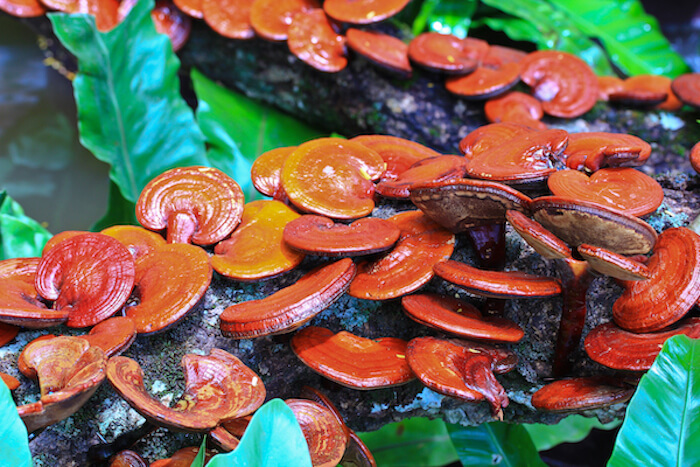
1. REISHI: THE KING OF MUSHROOMS
In Asian cultures, Reishi is revered as the king of mushrooms—and sometimes even as a divine mushroom of immortality. In Chinese medicine, it’s a Shen tonic: an herb that nourishes the spirit. Along with its capacity to improve overall health and vitality, Reishi is known for cultivating spiritual potency.

Reishi mushrooms are potent adaptogens that help the body resolve physical or psychological stress. As such, they’re a wonderful remedy for anxiety. Paradoxically, they can bring a feeling of calm while at the same time boosting energy, making Reishi perfect for harmonizing mood.
Other uses and benefits of Reishi mushrooms include:
• Reducing inflammation
• Treating cancer and heart disease
• Resolving hormonal imbalances
• Addressing neuro-degenerative problems
• Healing adrenal fatigue
• Improving memory and concentration
• Facilitating deep and restful sleep
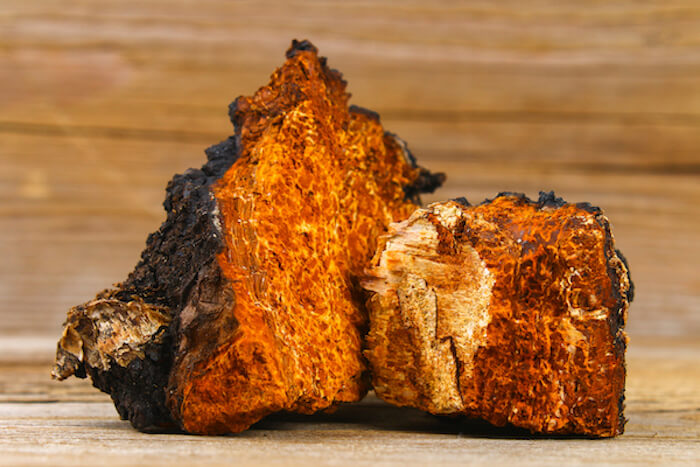
2. THE MANY WONDERS OF CHAGA
One of the most awesome things about Chaga mushroom is that it can easily serve as a coffee or tea substitute. The dried root—in chunks or ground into a powder—can be simmered with water, and the rich nutty flavor of the resulting tea makes for a delicious as well as sublimely nutritious morning, afternoon, or evening drink. Helpful hint: sweeten your Chaga tea with a bit of maple syrup and pure vanilla extract, and then add a splash of milk or half-and-half.
Chaga mushroom health benefits include:
• Enhancing the immune system
• Powerful antioxidant (one of the highest ORAC values of all foods)
• Potent anti-viral action
• Prevention and treatment of cancer
• Reducing inflammation
• Improving physical endurance
• Treatment of heart disease, liver disease, diabetes, parasites, and stomach pain
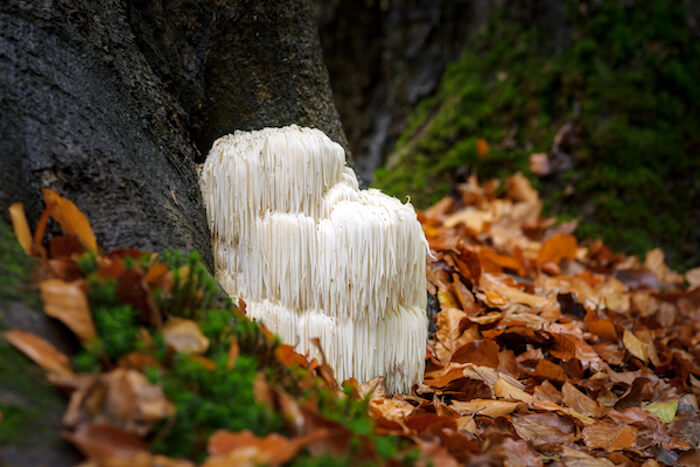
3. LION’S MANE FOR BRAIN HEALTH
Lion’s Mane—so-named because it looks a bit like a furry white lion’s mane—is the mushroom most strongly associated with brain health and enhanced cognitive function. It has been shown to stimulate the growth of brain neurons and initiate the process of remyelination—which maintains the ability of neurons to properly conduct electrical signals.
Lion’s Mane is also linked to an improvement of short-term memory and the resolution of mild cognitive impairments.
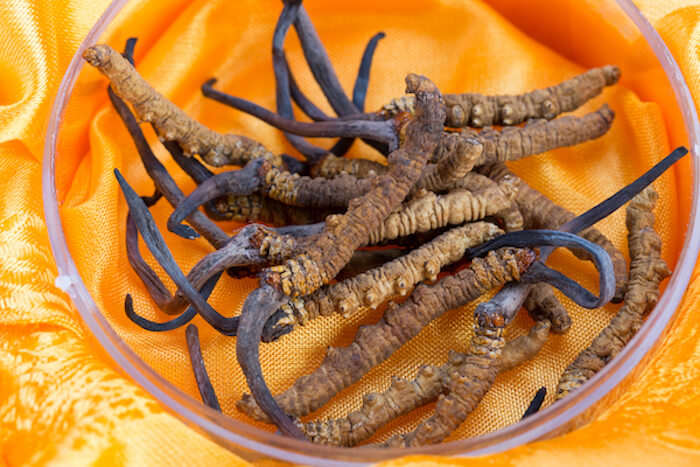
4. CORDYCEPS FOR ENHANCED PERFORMANCE
If you’re looking for a medicinal mushroom to enhance exercise and athletic performance, then Cordyceps is a great choice. The way that Cordyceps accomplishes this is by increasing the flow of oxygenated blood through the body—which enhances endurance.
Cordyceps also has been shown to stimulate the production of ATP—the primary source of energy in the cells of the human body. Increased oxygen levels plus cellular energy translates into improved stamina—which tends to enhance athletic performance.
WAYS OF TAKING MEDICINAL MUSHROOMS
Certain medicinal mushrooms can be incorporated into your diet. Others are best taken as a liquid extract or in capsule or tablet form.
Dr. Weil suggests that we avoid eating mushrooms raw—and instead cook them well, at high temperatures: by sauteeing, grilling, broiling them, or adding them to a soup or stew. Among medicinal mushrooms, those that are also delicious to eat—and whose active ingredients are not adversely affected by cooking them—include Shiitake (especially excellent in Asian stir-fries), Cordyceps, Enoki, Lion’s Mane, and Maitake.
And Chaga mushroom, as mentioned above, can be made into a tea and enjoyed as a warm beverage.
When higher concentrations are necessary—or when the overly bitter flavor of the mushroom precludes its inclusion in lunch or dinner—a growing number of supplements are available, in extract or capsule form. Paul Stamets and his company (Host Defense-Fungi Perfecti) offer a line of excellent medicinal mushroom supplements, in a capsule and extract form. For instance, My Community and Stamets 7 are extracts that combine several different medicinal mushrooms, for broad-spectrum immune-system support.
However, if you choose to include medicinal mushrooms in your life–as part of your diet or as a supplement–enjoy the benefits fully, as a wondrous gift from our friends from the fungal kingdom.
YOU MAY ALSO LIKE:
GOT HEMP?
With their unique balance of nutrients, including vitamins, enzymes, protein, and healthy fats, hemp seeds place as one of the most…
THE IMPORTANCE OF OFF DAYS IN YOUR WORKOUT WEEK
By Kevin Jones Personally, I found it tough to take rest days for a long time. I’m a runner, and I…
WHAT IS QI? – AN INTRODUCTION TO SUBTLE LIFE-FORCE ENERGY
If you practice qigong or martial art—or have received acupuncture treatments—or have an interest in Feng Shui—then you’ve probably at least…
WHY IT’S COMMON TO GET SICK AFTER VACATION & HOW TO PREVENT IT
By Tess DiNapoli It’s so common it even has a name among frequent travelers and trade-show attendees: Convention Crud. It’s the…
PITTA BALANCING VEGGIES
In Ayurveda, summer is known as Pitta season. Those people whose primary constitution is Pitta will be the ones who will most strongly experience the…
HEART AND BRAIN SCIENCE TO MAKE NEW YEAR’S RESOLUTIONS FUN AND SUCCESSFUL
“The secret of change is to focus all of your energy, not on fighting the old, but on building the new.” …
